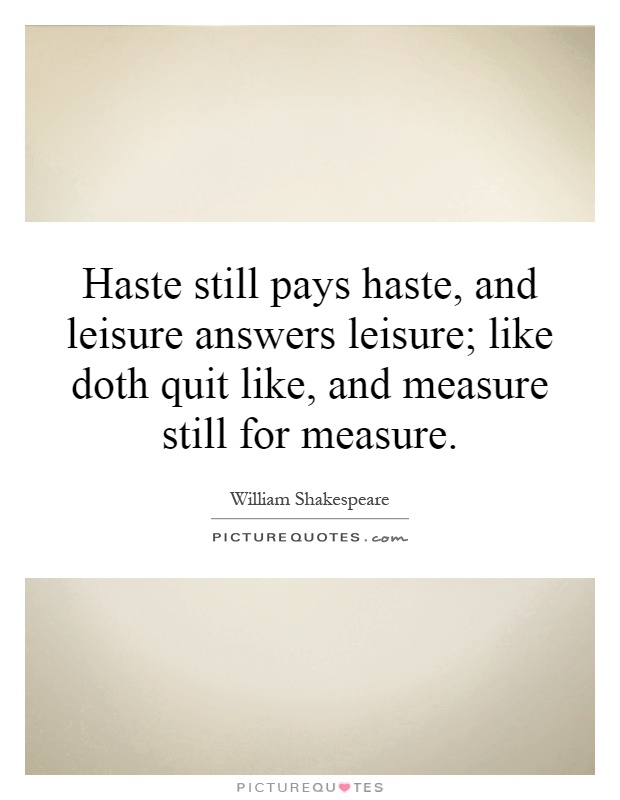Haste still pays haste, and leisure answers leisure; like doth quit like, and measure still for measure

Haste still pays haste, and leisure answers leisure; like doth quit like, and measure still for measure
In the world of William Shakespeare, the concept of haste and leisure is a recurring theme that is often explored in his plays and sonnets. The quote “Haste still pays haste, and leisure answers leisure; like doth quit like, and measure still for measure” encapsulates the idea that actions have consequences, and that there is a balance to be found in the way we approach life.Shakespeare’s works are filled with characters who act impulsively and hastily, only to face the repercussions of their actions later on. In plays like “Romeo and Juliet” and “Macbeth”, we see how the characters’ impulsive decisions lead to tragic outcomes. Romeo and Juliet’s hasty marriage ultimately leads to their untimely deaths, while Macbeth’s ambition drives him to commit murder and ultimately leads to his downfall. These examples illustrate the idea that haste often leads to negative consequences.
On the other hand, Shakespeare also explores the idea of leisure and taking one’s time in making decisions. Characters like Hamlet and Prospero from “The Tempest” are known for their thoughtful and deliberate actions. By taking their time to consider their choices, these characters are able to avoid making impulsive decisions that could have negative consequences.
The quote also touches on the idea of karma or the idea that “like doth quit like”. In Shakespeare’s plays, characters often face consequences that are proportional to their actions. For example, in “The Merchant of Venice”, Shylock’s desire for revenge ultimately leads to his own downfall. This idea of “measure still for measure” suggests that there is a sense of justice in the world, and that actions will always have consequences.
Overall, the quote “Haste still pays haste, and leisure answers leisure; like doth quit like, and measure still for measure” reflects Shakespeare’s belief in the importance of balance and moderation in life. By exploring the consequences of haste and leisure in his works, Shakespeare reminds us that our actions have repercussions and that there is a need to find a balance in the way we approach life.












 Friendship Quotes
Friendship Quotes Love Quotes
Love Quotes Life Quotes
Life Quotes Funny Quotes
Funny Quotes Motivational Quotes
Motivational Quotes Inspirational Quotes
Inspirational Quotes